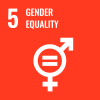Obock, Djibouti – Together with her four-year-old daughter and six-month-old baby, 31-year-old Fatimah* embarked on a journey across the scorching sun of the desert north of Obock in a bid to reach the Gulf States in search of job opportunities.
“We travelled for four months, on foot most of the time. I was afraid we would die on the way.”
At the Migration Response Centre in Obock town situated in northern part of Djibouti, Fatimah opens up about the conditions of her journey, and the reasons for her departures.
In a world where nearly one in three women experience gender-based violence, Fatimah’s story stands out. She was a widow with two sons when she married her current husband, with whom she had a daughter. Fatimah explains how the relentless abuse from her new husband compounded by the lack of means of providing for her children pushed her to embark on this treacherous journey twice.
The first time she attempted the journey was just over a year ago, driven by his hostility towards her two eldest sons. To protect them, she entrusted them with her elderly mother, but this meant she now had to provide for them. Leaving her little girl with her husband, she set off on the Eastern Route to try and find work on the other side of the Bab-El-Mandeb strait, in the Arabian Peninsula.

Fatimah, her 4-year-old daughter and 6-month-old baby are sheltered in the IOM Migration Response Centre in Obock, Djibouti. Photo: IOM Djibouti 2023/Laëtitia Romain
While significantly fewer in number than men, data from the International Organization for Migration (IOM) shows that the number of women taking this route has doubled in the last two years, from 53,000 in 2021 to 106,700 in 2022. As of June 2023, women and girls represented 23 per cent of all those moving along the Eastern Route (compared to 32% in 2022).
Fatimah points out that the women often walk together and generally follow a group of men closely enough to be able to call them for help.
Fatimah's strength was waning by the day. Towards Tadjourah, on the Djiboutian coast, the IOM mobile health patrol found her completely exhausted. She was taken to the Migration Response Centre (MRC) clinic and was soon informed by the medical staff that she was pregnant. She received care and was able to return home in Ethiopia, through the IOM Assisted Voluntary Return (AVR) programme.
Her decision to return home was a relief from the dangers of the desert but she found herself facing the same situation that prompted her to leave. Her husband kicked her out, doubting he was the father of their unborn child and rejected their daughter, forcing Fatimah to solely take care of the four kids and her elderly mother.

Fatimah and her family are bringing their dinner to the family’s dormitory to eat their meal in a quiet area. Photo: IOM Djibouti 2023/Laëtitia Romain
“I would have stayed if I'd had the choice,” Fatimah declares.
Believing that she had no other option but to leave home in search of a better future for herself and her family in the Gulf States, Fatimah set off again two months after the birth of her new baby boy, taking her daughter and the baby with her this time.
“The other women helped me along the way.”
As she approached Obock, however, increasingly worried about her children's survival, she found herself seeking support from IOM’s MRC again.
"There were too many difficulties including thirst, hunger, the risks of torture inflicted by the smugglers. I was very afraid for my children."


Women hosted at the MRC are celebrating a traditional ceremony of coffee on the eve of their assisted voluntary return to Ethiopia. Photo: IOM Djibouti 2023/Laëtitia Romain
Fatimah is one of the 336 women and girls assisted by the MRC in 2023. Irregular migration exposes women and girls to increased risk of gender-based violence (GBV). However, this violence is often underreported due to fear of retaliation and social stigma. The risks and consequences of gender-based violence are exacerbated for women experiencing a lack of livelihood, like Fatimah.
Anchored by the recently unveiled strategic plan, IOM response aims at saving lives and protecting people on the move; facilitating pathways for regular migration to enable people like Fatimah to access employment opportunities without the risks and driving solutions to displacement.

An IOM protection assistant talks with the women about their daily life concerns in the women’s dormitory. Photo: IOM Djibouti 2023/Laëtitia Romain
As part of protecting people on the move, The MRC offers appropriate protection services, medical assistance, psychosocial care, food and shelter support to migrants in dire situations. The MRC is part of the implementation of the Migrant Response Plan for the Horn of Africa and Yemen, including urgent life-saving humanitarian and protection interventions to support communities of origin, transit and destination. An appeal for funding is ongoing as the plan still has a funding gap of over 80 per cent.
Continuing advocacy for activism against GBV is essential to the protection of women and girls, a priority for IOM as stressed by IOM Director General Amy Pope. Gender-based violence is one of the least funded areas of humanitarian assistance for IOM, leaving millions of women and girls without access to services and preventive programmes. IOM continues to be on the frontline of assisting those in need, and strongly advocates for the strengthening of multi-sectoral services to support survivors of gender-based violence. Investing is critical in the effort to reach the Sustainable Development Goals by 2030.
Created in 2011, the MRC is currently supported by funding from the European Union Emergency Trust Fund for Africa, the United States Bureau of Population, Refugees and Migration, the Swedish International Development Cooperation Agency and the governments of France and Norway. This support is aligned to the Regional Migrant Response Plan (MRP) for the Horn of Africa to Yemen and Southern Africa.
*Not her real name.
Written by Laëtitia Romain, IOM Djibouti Media, and Communications Officer.


